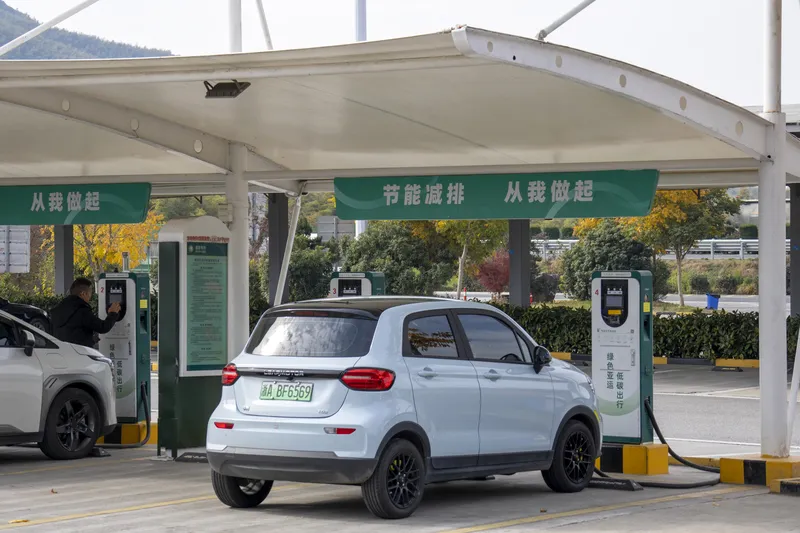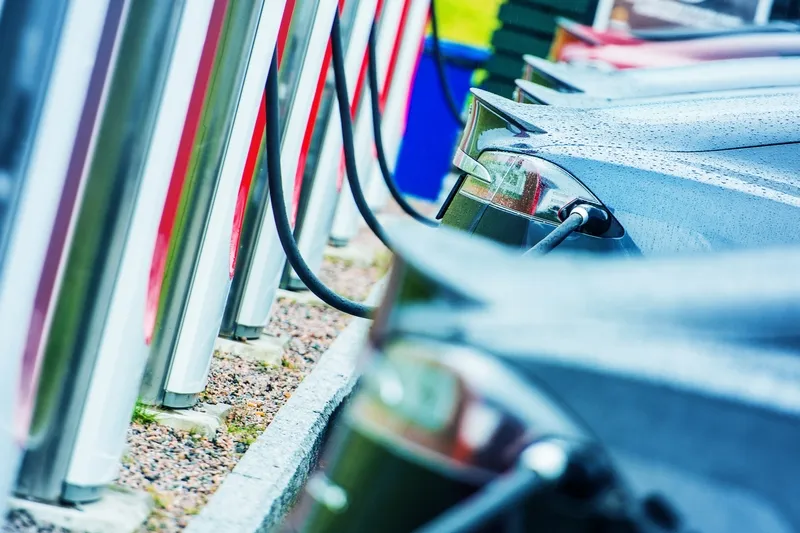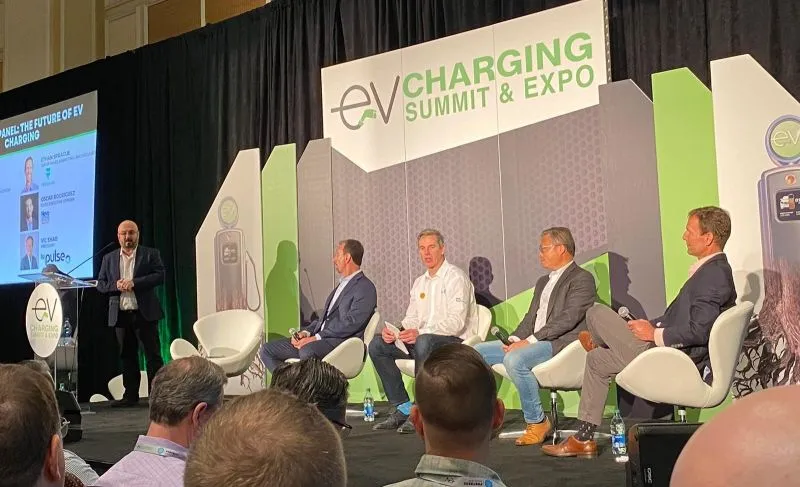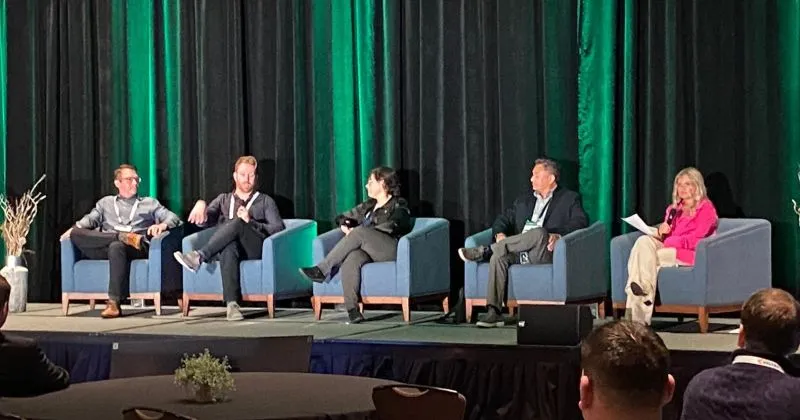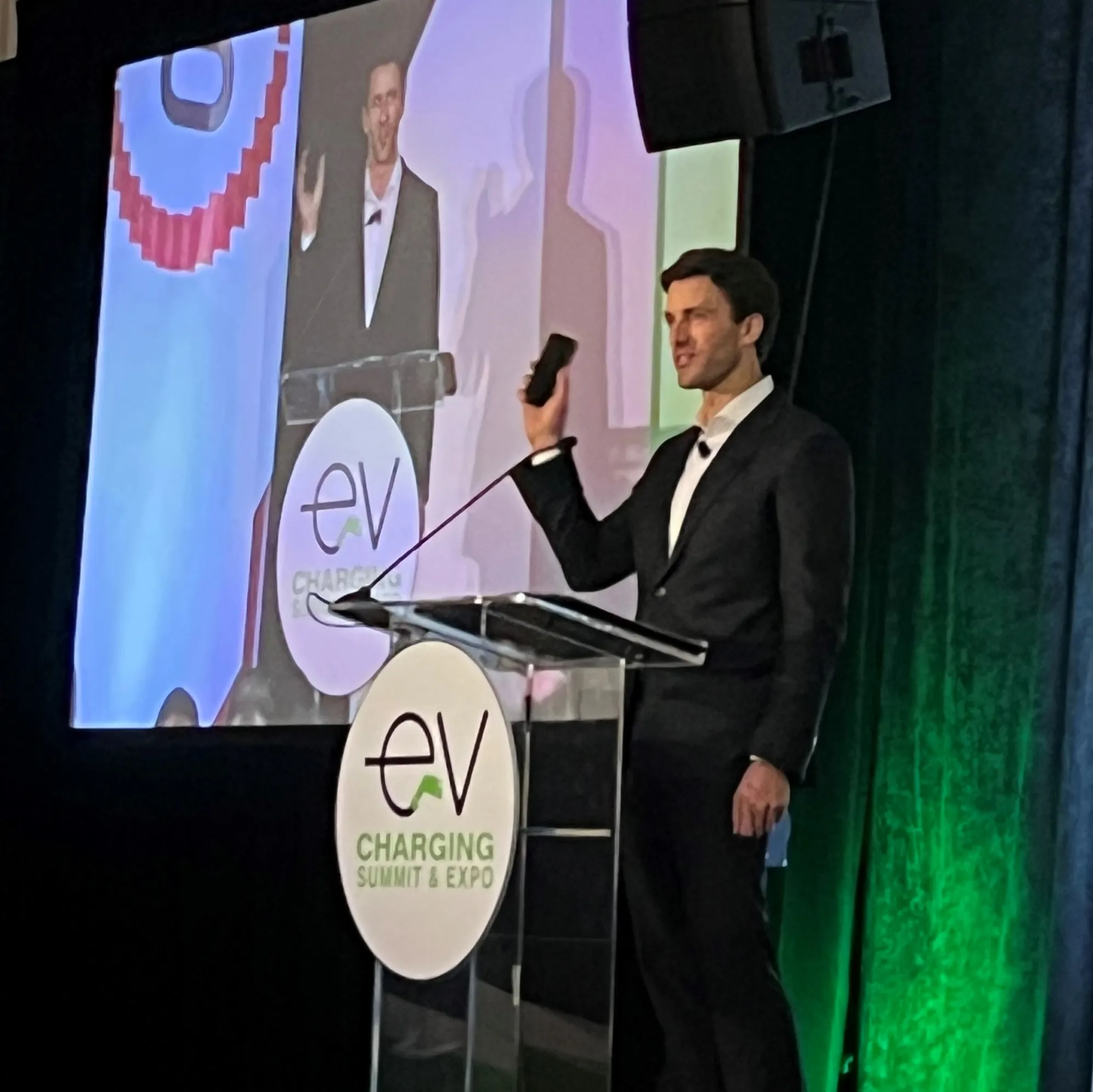
That was one of the key issues highlighted by Andrew Cornelia, CEO of the Mercedes-Benz HPC charging network for North America, while giving the keynote opening address at the the EV Charging Summit & Expo in Las Vegas.
Cornelia said that the EV industry is at a tipping point, and media headlines about a slump in the sector do not tell the full story.
"Last year EV sales were up by 27%. At Mercedes-Benz, our EV sales were up by 250%," said Cornelia.
He added that, while the next era of EV charging needs more infrastructure, more quantity and more construction, it will be propelled by quality and experience.
Cornelia drew parallels with the smartphone sector as an indication of how this cultural shift is nothing new.
"In 2000 half of adult Americans did not own cell phone, and half of those individuals had no plans to purchase one," he said. "Just a decade later, 9 in 10 of us owned a cell phone. The batteries of these devices are simpler, but the story is familiar. In 2010, we sold 300 EVs. Fast forward, and last year we sold 1.2 million.
"We went from less than 1.5% of cars on the road to about 10%. By 2030, the majority of new cars sold in America will be electric."
Cornelia said that Mercedes-Benz has invested US$1bn in building its charging network in North America.
Highlighting the factors that are key for a successful rollout of EVs, he added: "First, we have to ensure predictability across the charging value chain. Second, we must push driver-focused public policy forward. And third, we have to center our efforts around people, because the driver and the driver experience will increasingly become what defines success for all of us."
In terms of predictability, he said that network uptime is as important, if not more so, than network coverage. "Just like crossing a bridge, when you show up charging has to work. This is critical infrastructure. Second, charging has to meet drivers where they are today and where they're going tomorrow."
While 80% of drivers have access to home charging today, Cornelia said that 60-70% of those drivers still use public charging at least once a week: "Public charging will be home charging for a large majority of drivers. That has to be a right."
He added that interoperability is a core focus of Mercedes-Benz's strategy and its charging network has been open to all drivers from day one.
Achievable standards
Beyond the financial support the EV charging industry receives from the US government's NEVI (National Electric Vehicle Infrastructure) program, Cornelia said the sector also needs ambitious and achievable standards for interoperability, reliability and uptime.
He highlighted the Joint Office of Energy and Transportation's National Charging Experience Consortium, a public-private partnership that Mercedes-Benz is a member of, that looks to elevate the charging experience for all, which Cornelia said requires pushing charging technology forward.
"One way we are doing that is by offering amongst the fastest charging outlets in North America. 400 kilowatts - that's about full charge in 15 to 20 minutes. Why fast charging? Because we want to go further than meeting today's demand. We want to get ahead of tomorrow's," he added.
He said it's not just increasing charging speeds, it's about driving down inconvenience, with a need to build valuable experiences around charging that match the dwell-time considerations at charging amenities.
Addressing the issue of the greater cost of an EV that prevents consumer uptake, he said this was now nearing a tipping point: "The average cost of a gasoline vehicle is US$47,000 and the average cost of an EV is US$50,000. We are close."

